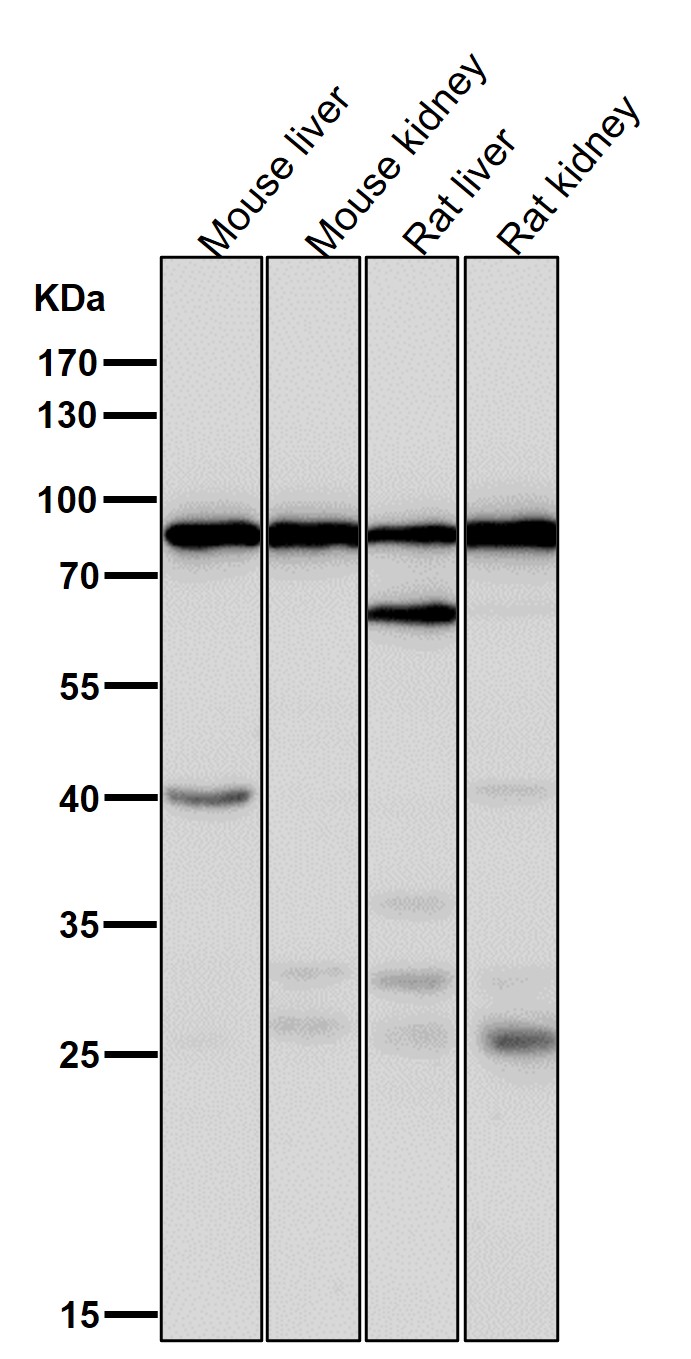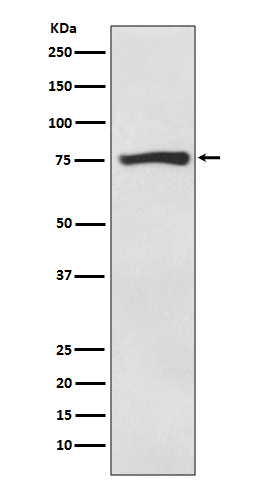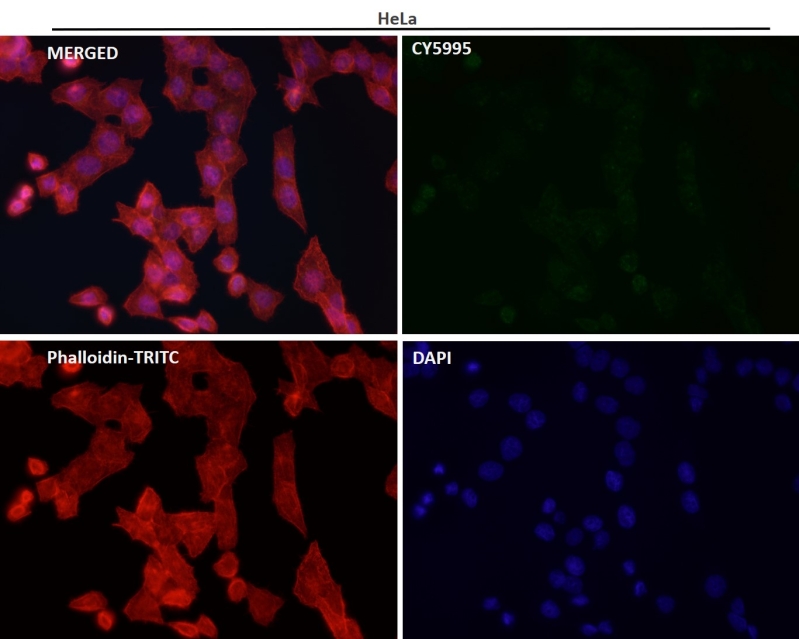


| WB | 咨询技术 | Human,Mouse,Rat |
| IF | 咨询技术 | Human,Mouse,Rat |
| IHC | 咨询技术 | Human,Mouse,Rat |
| ICC | 1/50-1/200 | Human,Mouse,Rat |
| FCM | 咨询技术 | Human,Mouse,Rat |
| Elisa | 咨询技术 | Human,Mouse,Rat |
| Aliases | ACSS2; ACSA; ACAS2; AceCS; MYH7B; Acetyl CoA synthetase;;ACSS2 |
| WB Predicted band size | 79 kDa |
| Host/Isotype | Rabbit IgG |
| Antibody Type | Primary antibody |
| Storage | Store at 4°C short term. Aliquot and store at -20°C long term. Avoid freeze/thaw cycles. |
| Species Reactivity | Human,Mouse,Rat |
| Immunogen | A synthesized peptide derived from human ACSS2 |
| Formulation | Purified antibody in PBS with 0.05% sodium azide,0.05% BSA and 50% glycerol. |
+ +
以下是关于ACSS2抗体的3篇参考文献示例(内容为示例,非真实文献):
1. **文献名称**:*ACSS2 promotes tumor metastasis through fatty acid metabolism in colorectal cancer*
**作者**:Chen L, et al.
**摘要**:研究揭示了ACSS2在结直肠癌转移中通过增强脂肪酸代谢促进肿瘤侵袭性,使用ACSS2抗体(来源:CST,货号XXXX)进行Western blot和免疫荧光实验,证实其高表达与患者预后不良相关。
2. **文献名称**:*ACSS2-mediated acetate utilization sustains neuronal histone acetylation and cognitive function*
**作者**:Mews P, et al.
**摘要**:探讨ACSS2在神经元代谢中的功能,发现其通过调控乙酸代谢维持组蛋白乙酰化水平,支持突触可塑性。研究中采用ACSS2抗体(品牌:Abcam,克隆号XXX)进行脑组织免疫染色,验证其在中枢神经系统的表达。
3. **文献名称**:*Targeting ACSS2-dependent acetyl-CoA synthesis suppresses triple-negative breast cancer progression*
**作者**:Sivanand S, et al.
**摘要**:提出抑制ACSS2可阻断三阴性乳腺癌的乙酰辅酶A合成,诱导代谢应激和凋亡。通过ACSS2抗体(来源:Santa Cruz,货号XXX)进行流式细胞术和组织芯片分析,证明其表达与肿瘤恶性程度正相关。
4. **文献名称**:*ACSS2 is essential for maintaining cellular redox balance in hypoxic tumors*
**作者**:Huang Z, et al.
**摘要**:揭示ACSS2在缺氧肿瘤微环境中通过调节氧化还原稳态促进细胞存活,利用ACSS2抗体进行免疫共沉淀(Co-IP)实验,发现其与抗氧化蛋白Nrf2存在互作。
(注:以上文献为模拟示例,实际引用时需核实真实文献。)
The ACSS2 (acyl-CoA synthetase short-chain family member 2) antibody is a crucial tool for studying the ACSS2 enzyme, which plays a pivotal role in cellular metabolism. ACSS2 catalyzes the conversion of acetate into acetyl-CoA, a key substrate for energy production, lipid synthesis, and protein acetylation. This enzyme is particularly significant in low-glucose or high-acetate conditions, where it helps maintain cellular acetyl-CoA levels, influencing processes like histone acetylation and gene regulation. Dysregulation of ACSS2 has been implicated in cancer, metabolic disorders, and neurodegenerative diseases, making it a target for therapeutic research.
ACSS2 antibodies are typically developed in hosts like rabbits or mice using immunogenic peptides or recombinant protein fragments. They are widely used in techniques such as Western blotting, immunohistochemistry (IHC), and immunofluorescence (IF) to detect ACSS2 expression, localization, and abundance in tissues or cell lines. Specificity is validated through knockdown/knockout controls or blocking peptide assays. Researchers employ these antibodies to explore ACSS2's role in tumor progression (e.g., supplying acetyl-CoA for cancer cell growth), metabolic adaptation, and epigenetic regulation. Recent studies also highlight its involvement in cellular stress responses, making ACSS2 antibodies essential for dissecting metabolic pathways in health and disease.
×